To promote a nonviolent transition to a Cuba that respects human rights, political and economic freedoms, and the rule of law.

Remembering political prisoners Sayli Navarro, Maykel Osorbo, and Sissi Abascal. Placing them in the context of communist Cuba's 65-year history of political prisoners.
“Never allow the government – or anyone else – to tell you what you can or cannot believe or what you can and cannot say or what your conscience tells you to have to do or not do.” - Armando Valladares,former Cuban prisoner of conscience and Ambassador to the UNHRC. Spent 22 years in Castro’s prisons.
Two years in prison today for defending human rights
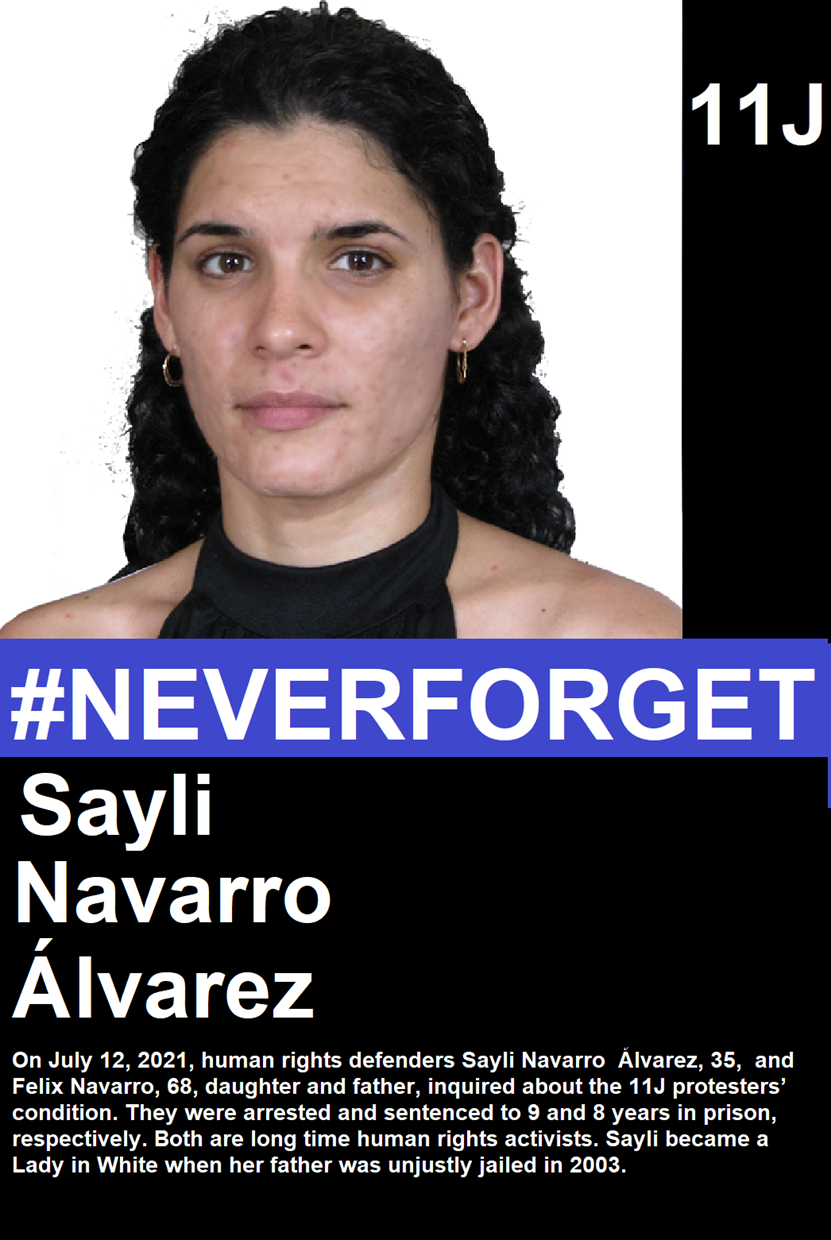
Sayli Navarro marked two years in prison today in Cuba for defending human rights.
Today, April 18, 2024, Sayli Navarro Álvarez marked two years of serving an unjust sentence in the La Bellotex prison in Matanzas, Cuba. There, she is enduring harsh living conditions, unhygienic conditions, cramped quarters, poorly prepared food, an abundance of cockroaches and mosquitoes, and a bed bug infestation.
Sayli Navarro became a Lady in White, together with her mom, over 21 years ago campaigning for her dad’s release following his arrest in March 2003 during the Black Cuban Spring. Her dad, Felix Navarro, is currently a member of the International Society for Human Rights (ISHR) board of directors. Amnesty International recognized him as a prisoner of conscience in 2003.
Both Sayli and Felix are longtime human rights defenders who have reported on systematic human rights violations in Cuba. They were detained after visiting a police station to learn more about the situation of the nonviolent demonstrators who had been imprisoned during the July 11, 2021 protests in Cuba.

Felix Navarro was arbitrarily jailed on July 12, 2021, never released, and taken to prison following a political show trial. Sayli was also detained on July 12th, but was released hours later, and had been staying with her mother, who is in poor health. She has also spoken out against her father's arbitrary imprisonment.
On March 2, 2022 the Cuban dictatorship confirmed the prison sentencesagainst two Cuban human rights defenders. Félix Navarro Rodríguez, ( then 68 years old), condemned to 9 years in prison. His daughter, Sayli Navarro (then 35), was condemned to eight years in prison.
Sayli was taken, with her hands and feet chained, to prison on April 18, 2022. Eleven months later, on March 18, 2023, a recording was releasedof her stating that state security is pressuring her to go into exile in order to be freed from prison, and that she rejected their offer.
Maykel Osorbo: A scare earlier, followed by good news
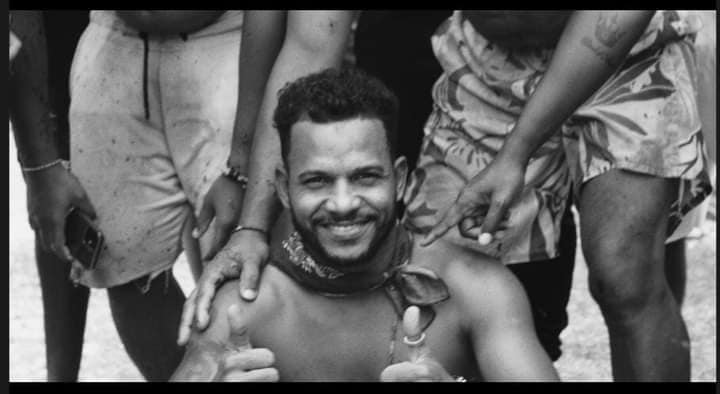
Maykel “Osorbo” Castillo Pérez
At 10:26am EST distressing news appeared on X from Cuban activist, professor, and art curator Anamely Ramos and the musician El Funky:
"They called from the prison to inform them that 4 prisoners had cornered Maykel and even drew blood. A certain Bemba and others. Try to ensure that nothing happens to Maykel!!!"
Anamely added: "This is the only thing we know so far but we are demanding that Maykel call to hear from him that he is fine. We do not want excuses for Maykel Osorbo."
At 4:04pm Anamely posted some good news. "Maykel Osorbo just called from prison. We put audio below so you can hear it and know what happened. For now everything is "OK" but it is important that we remain attentive. Pressure works and Maykel needs us to be safe. Thank you all!"
She ended her X with the hashtag #FreeMaykelOsorbo.
There is reason to be concerned.
Amnesty International reported on August 1, 2023 that since April 2023Maykel has been threatened by other prisoners in the facility where he is being held, and that the Cuban authorities have not provided for his safety.
Cuban artist and prisoner of conscience Maykel “Osorbo” Castillo Pérez was sentenced to nine years in prison on June 24, 2022. Maykel had been arbitrarily detained since May 18, 2021.
He is a member of the San Isidro Movement, founded in Havana, Cuba in 2018 to defend artistic freedom.
Maykel was one of the co-authors of the song Patria y Vida, and won together with the other musicians two Latin Grammys in 2021. He also appeared in the Patria y Vida video that went viral in Cuba, and around the world.
Amnesty International has recognized Maykel “Osorbo” Castillo Pérez as a prisoner of conscience.
Others have not been so lucky.
Sissi Abascal: Mattresses in female political prisoner's cubicle set fire by inmates three days ago

Sissi Abascal
Cubalex reported today that on April 15th an inmate set fire to the mattresses in the cubicle where Sissi Abascal Zamora is held. It is the second time that this has occurred without the authorities of the La Bellotex prison taking effective actions to guarantee the safety of the inmates.
This was not the first time Sissi had been the target of violence.
Reports are that a bus full of women dressed as civilians arrived where Sissi was nonviolently demonstrating with others on July 11, 2021, and proceeded to beat her and others up, and a bottle was broken over Ms. Abascal Zamora's head requiring that she receive stitches. Sissi Abascal Zamora was sentenced to six years in prison for participating in the July 2021 protests in the town of Carlos Rojas, in the municipality of Jovellanos, in the province of Matanzas. The 23-year-old activist and member of the Party for Democracy Pedro Luis Boitel was given ten business days to appeal, and officials rejected her appeal.
Historical context to the present day

Selection of the over 1,000 political prisoners jailed today in Cuba. [ Office of Carlos A. Gimenez ]
There are currently over a thousand prisoners of conscience in Cuba. Most were jailed for taking part in nationwide protests in July 2021 demanding freedom, human rights, and an end to dictatorship. Cuban prisoners of conscience have been a reality in Cuba since 1959. Some of them had participated in the struggle against Batista, and made Fidel Castro's rise to power possible. There have been tens of thousands of political prisoners, and the exact total number remains unknown.
Huber Matos, a school teacher, declared himself in opposition to Fulgencio Batista on March 10, 1952 the day that Cuban democracy came under attack. Following the extrajudicial killing of some of his former students he joined the armed struggle and ended up being one of the leaders of the revolutionary insurrection that drove Batista from power early on New Year’s Day 1959.
Huber Matos fought against Batista. Spent 22 years jailed for nonviolent dissent with communist rule.
Less than a year later he would be on trial for his life. What was his crime? Warning Fidel Castro in several private letters, where he tendered his resignation only to have it refused, that communists were infiltrating the revolutionary government. In these letters he plainly stated:
"I did not want to become an obstacle to the revolution and I believe that if I am forced to choose between falling into line or withdrawing from the world so as not to do harm, the most honorable and revolutionary action is to leave."
Fidel Castro made the letters public generating the crisis and denouncing the charge that communists were infiltrating the government. He ordered Camilo Cienfuegos, another popular revolutionary leader, to arrest Matos. The Castro brothers began to prepare a show trial and the execution by firing squad of Huber Matos for treason.

Huber Matos fought against Batista. Spent 22 years jailed for nonviolent dissent with communist rule.
The revolutionary tribunal was prepared. Fidel Castro spoke to Matos promising that if he confessed to everything that he would not face any prison time and could go home. Matos refused, and as the show trial began and they tried to shut him up - he refused. He went on to speak for more that three hours and concluded his testimony stating:
"I consider myself neither a traitor nor a deserter. My conscience is clear. If the court should find me guilty, I shall accept its decision - even though I may be shot. I would consider it one more service for the revolution."
Revolutionary officers that had been convened at the trial to chant "to the execution wall" instead, moved by his testimony, rose up and applauded Matos. Instead of the firing squad the revolutionary tribunal sentenced him to 22 years in prison in December 1959.
Huber Matos would serve every day of those 22 years suffering beatings and other tortures.
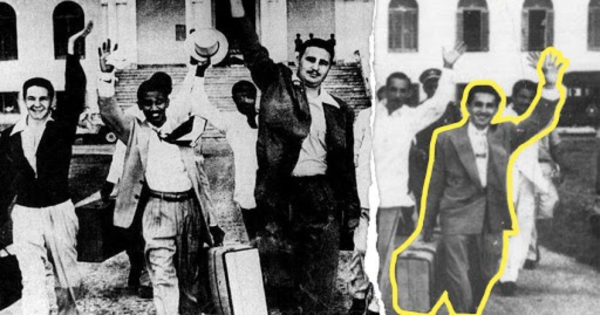
Mario Chanes de Armas, right, before he was edited out of the photo in the official Granma newspaper.
Mario Chanes de Armas, a regional leader of the Cuban Brewery Workersjoined Castro's efforts to overthrow Fulgencio Batista. Both were jailed by Batista for their anti-regime activities. Mario Chanes took part in the July 26, 1953 assault on the Moncada Barracks and was wounded. He was put on trial with the Castro brothers, and sentenced to 10 years in prison, but was pardoned with them after 22 months.
Mario Chanes trained in Mexico and returned to Cuba on the Granma yacht with the Castro brothers, and Ernesto “Che” Guevara to defeat Batista.
Chanes could have had any position in the new regime, but opted to return to his brewery job. After two years of watching Castro betray their movement, Chanes spoke out against the communist influence in the revolutionary government. Chanes was tried as a counterrevolutionary and in 1961 imprisoned for 30 years.
Over the past sixty four years the international community has become accustomed to the systemic injustices perpetrated by the Castro dictatorship. Between 1959 and 1988 no international organizations were allowed to visit prisons in Cuba. This included the International Committee of the Red Cross. This was at a time that prisons were filled with prisoners of conscience and political prisoners in Cuba.
Independent human rights organizations in Cuba are not legally recognized by the Castro regime. The Cuban Committee for Human Rights was formally established on January 28, 1976 but did not become fully active until 1983 because State Security arrested everyone shortly after it was founded.
Seven years later, in October of 1983, in the Combinado del Este prison, several prisoners of conscience who had similar aspirations met. Paradoxically, what the regime did was to join together many of those who were already marching along similar paths, and the Cuban Committee for Human Rights eventually re-emerged where many political projects usually end. In truth, there were only seven: Ricardo Bofill, Gustavo Arcos Bergnes (then incommunicado on the ground floor and with whom the others could only speak when they took them out to the prison yard), Elizardo Sánchez Santa Cruz (who was already in the Boniato prison, but kept in contact with the others through family members), the former director of Pabellón Cuba, Teodoro del Valle, the poet René Díaz Almeyda, the diplomat Edmigio López Castillo and Ariel Hidalgo.
In 1987 the documentary "Nobody Listened" captured the human rights reality in Cuba with interviews with former political prisoners, archival footage of firing squads and other instances of repression. Former prisoners described show trials, extajudicial executions, and cruel and unusual punishment that rose to the level of torture. This in an environment were the international community was not listening.
However things were about to change on the international front.
The Cuban Committee for Human Rights was able to document human rights abuses and smuggle these reports out of the prisons and out of Cuba reaching the international community. It was their work combined with the diplomatic pressure of the Reagan Administration, and their Ambassador to the United Nations Human Rights Commission, former prisoner of conscience, Dr. Armando Valladares that on March 8, 1988 the Cuban government was finally called to account for systematically denying access to Cuba's prisons.
On March 11, 1988 Havana invited the United Nations Human Rights Commission to investigate human rights in Cuba. Over the course of the next year not only the UN Human Rights Commission, but also the International Committee of the Red Cross, Amnesty International and Human Rights Watch were able to enter Cuba and document the human rights violations in the island.
This was the first and last time these organizations were allowed into Cuba to visit Castro's prisons. The lack of outrage turned into a permanent acceptance of injustice in Cuba.
Thirty four years have passed since the last time the International Committee of the Red Cross was able to visit Cuban prisons. Meanwhile the International Committee of the Red Cross has visited the U.S. Guantanamo detention facility over 100 times since 2001.
During the Cuban Black Spring in 2003 over a 100 activists were arrested and 75 of them were subjected to political show trials and condemned to prison terms ranging from 15 to 25 years in prison. A Czech film crew in Cuba filmed and interviewed activists before the crackdown and then interviewed their friends and family members after the show trials.
Out of this crackdown the wives, daughters, and sisters of these activists formed the Ladies in White and began organizing for their freedom. Regular marches, literary teas, and lobbying both the Cuban government and the international community. Some have been jailed, others beaten, and one of the founding leaders, Laura Inés Pollán Toledo, died under suspicious circumstances on October 14, 2011. There are still extrajudicial executions in Cuba by Castro's secret police. Oswaldo Payá Sardiñas, and Harold Cepero were murdered in a state security engineered killingson July 22, 2012, according to the Inter-American Commission on Human Rights in their June 9, 2023 report on the merits.
Prisoners of conscience have died in Castro's prisons while protesting mistreatment at the hands of Cuban officials. This has gone on for decades. Some of the high profile cases stretch out over more than a half century: student leader Pedro Luis Boitel (1972), human rights defender Orlando Zapata Tamayo (2010), UNPACU member Wilman Villar Mendoza (2012) and political prisoner Yosvany Arostegui Armenteros are but a few that have been well documented.


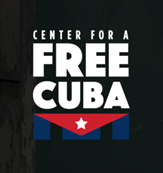


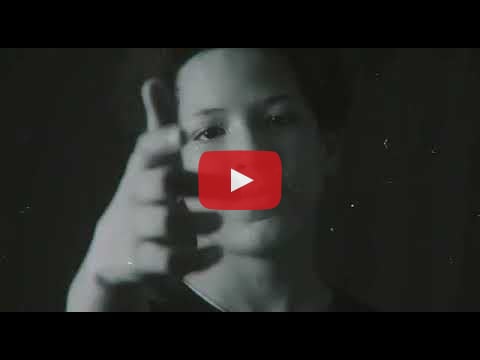


No hay comentarios:
Publicar un comentario